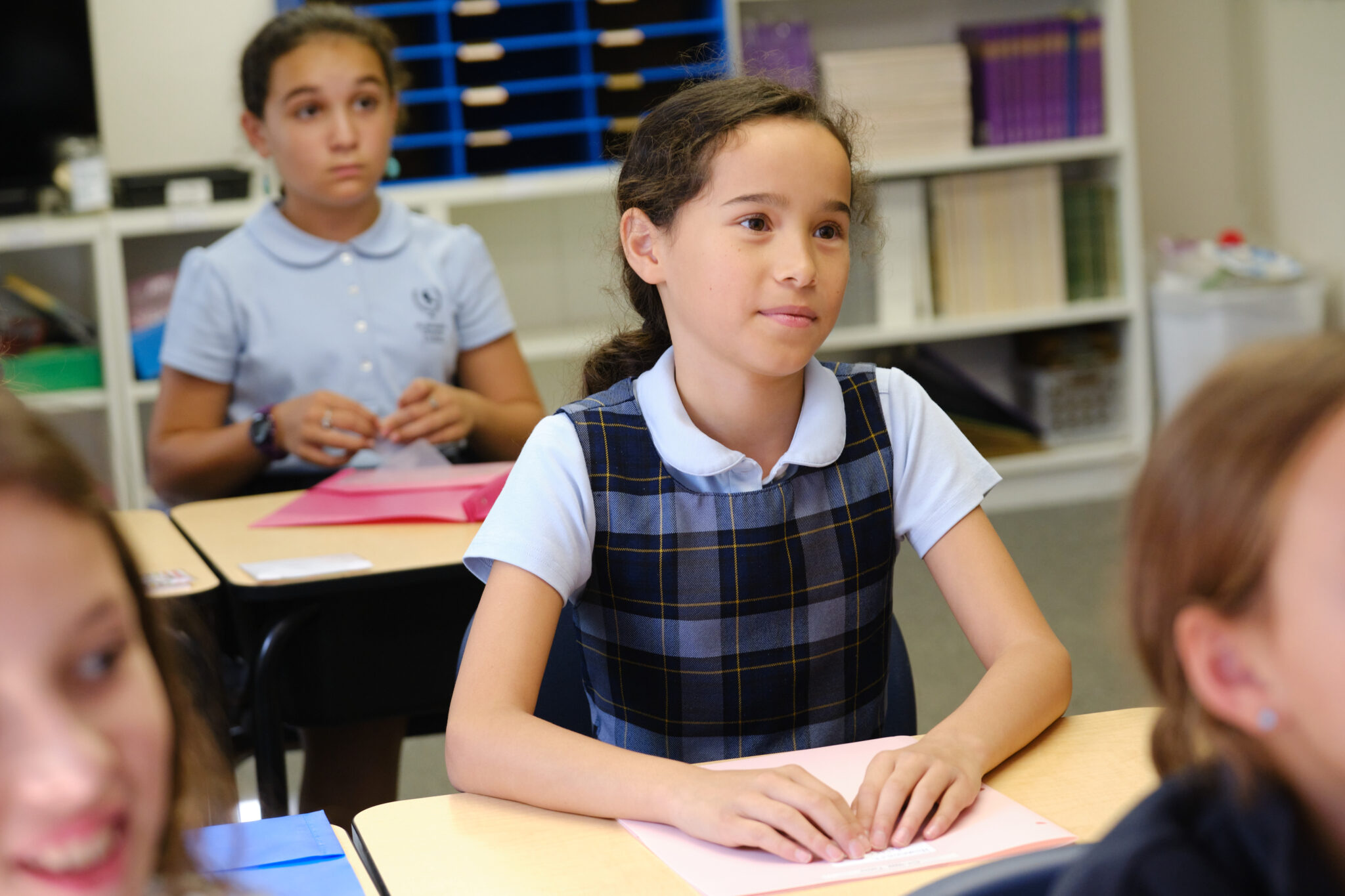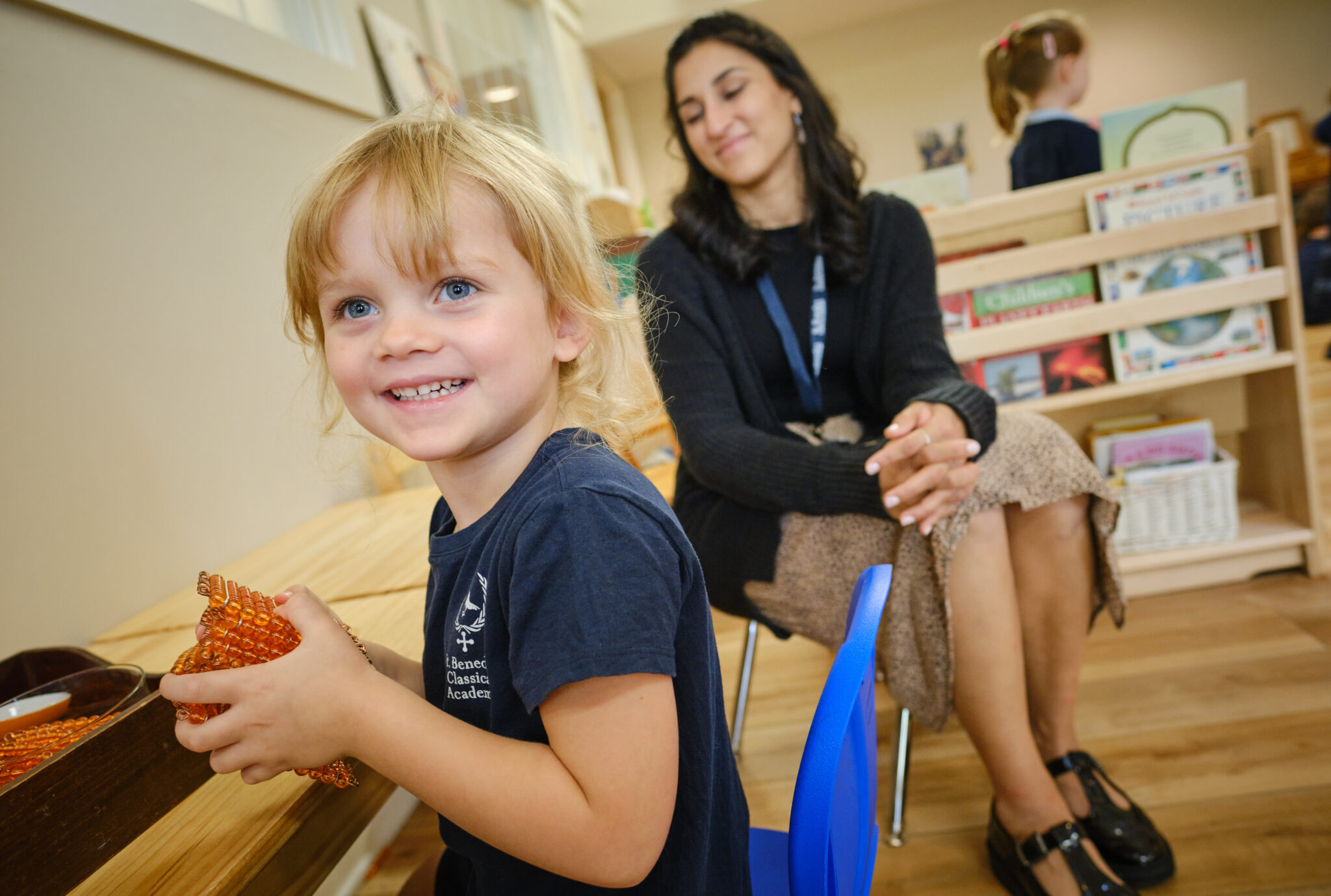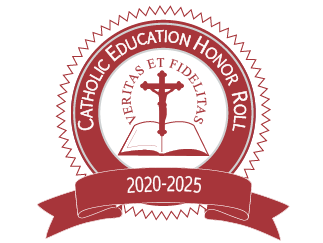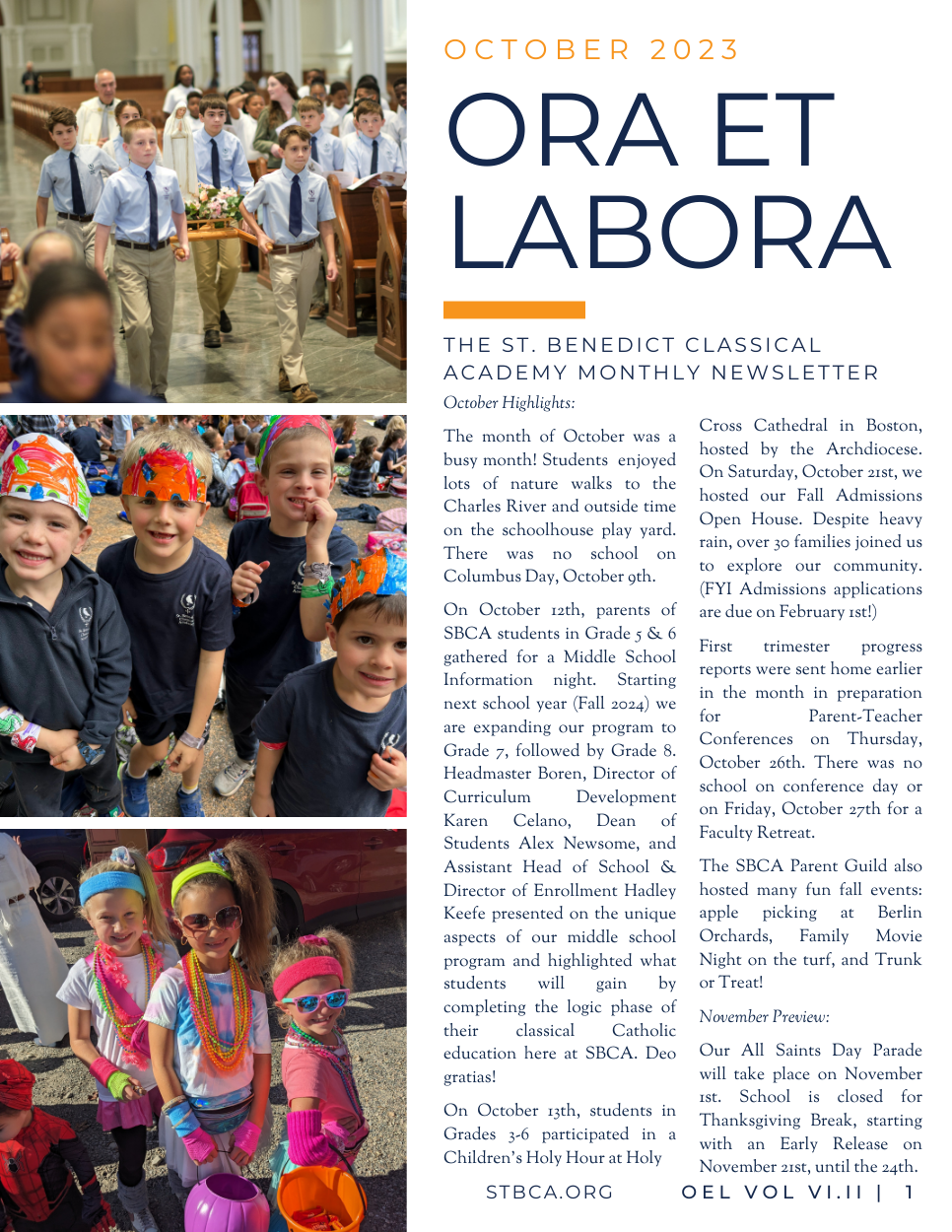Our Mission
St. Benedict Classical Academy (SBCA) offers a distinctive classical Catholic education for the whole child, cultivating intellectual and moral virtue in a joyful, Christ-centered environment, rooted in the riches of Catholic magisterial teaching as defined by the Catechism of the Catholic Church. In uniting the Catholic Faith with a classical curriculum, and integrating into the life of the school the virtues first learned in the family, our students gain not only knowledge, but an appreciation of education as a noble pursuit.



Our Vision
Our mission at St. Benedict Classical Academy is an ambitious one. We partner with parents as we strive to cultivate intellectual and moral virtue in children in the pursuit of academic excellence. Virtue, the pursuit of intellectual and moral excellence, is something we take very seriously at SBCA, that we teach intentionally and then seek to integrate into both academic study and into the life of the school. Why? Because worldly success without virtue doesn’t make for a flourishing community or a flourishing individual. Students can only truly excel—become their best selves, the people God intends them to be—if they strive to learn and put into practice the habits of mind and heart that enable them to develop strong moral character, an internal compass that guides them to use their gifts not for themselves, but in service of God and others, for the common good.
For this reason, we believe young children ought to be steeped in, and surrounded by, the goodness, truth, and beauty of the Catholic Faith, and the riches of classical literature, poetry, art and music, within a community of faith-filled families. This is what makes classical education distinctive: classical educators understand that some things are more excellent than others, more good, true, and beautiful, and so more worthy of our time. As St. Paul tells the Philippians: “Whatever is true, whatever is noble, whatever is right, whatever is pure, whatever is lovely, whatever is admirable—if anything is excellent or praiseworthy—think about such things.”
This distinctive kind of education requires—and thereby inculcates—good habits of the intellect and of the will. And this is why classical education is best integrated with the Catholic view of the person: created good because in the image of God—and called to greatness, to sanctity—but in need of guidance, encouragement, and the wisdom of faithful, loving, and joyful teachers for their proper formation.
Portrait Of A SBCA Graduate
- They are able to discern beauty—in writing, art, music, and in all of God’s creation, understanding their responsibility as grateful stewards of that creation.
- They are captivated by great books and the engaging characters and stories therein, rather than feel the need always to be entertained by electronic stimuli.
- They can engage in ideas and discern true principles, and are motivated by the lifelong pursuit of truth and wisdom, rather than being consumed only by the acquisition of things.
- They have an understanding of the historical context in which they live, and reject the false idea that moral progress is inevitable or can be achieved solely or even mostly by public activism, and are skeptical of schemes to profoundly remake society.
- They can articulate and defend the bedrock principles of Western civilization and of the American experiment in ordered liberty, rather than believing that assertion of feeling or perceived grievance constitutes authentic argument.
- They understand how great character is formed and noble leaders born, rather than being pulled by fleeting cultural trends and what’s popular.
- They can disagree with others without being disagreeable.
- They recognize the profound dignity of each human being as created by an all-loving God, and so resist the impulse to categorize individuals on the basis of race, ethnicity or other attributes; they reject the idea that an individual’s worth is measured by worldly honors, choice of field of honest and moral professional work, or salary.
- They regard the flourishing of families, and the devotion of mothers and fathers, as the vital precondition for the flourishing of our civilization, for which they are grateful.
- They care more about lovingly fulfilling their duties than asserting their rights.
In a word, classical (or “liberal”) education helps students become free to pursue the truth and so become the persons God intends them to be.




